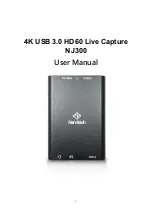
UK
Info card
Inductive sensors
6
5
Electrical connection
The unit must be connected by a qualified electrician.
①
Use a miniature fuse according to the technical data sheet, if specified.
Recommendation: Check the safe functioning of the unit after a short circuit.
②
Negative switching
③
Positive switching
④
Sensor 1
⑤
Sensor n
Connection systems
+U
B
/ L1
0
V / N
+U
B
0
V
+U
B
0
V
Two-wire technology
(negative
or
positive switching)
3-wire technology
(negative
or
positive switching)
4-wire technology
(positive switching, normally closed and
normally open)
Series connection (AND)
+U
B
0
V
+U
B
/ L1
U
1
U
n
U
L
0
V / N
Series connection of 3-wire units
Max. 4 units. Power-on delay times,
voltage drops and current consumptions add up.
U
B min
(sensor) and U
HIGH min
(load) must remain
unchanged.
Series connection of 2-wire units
Not recommended because of undefined operation
when blocked! Use special types which can be
connected in series (max. 2 units).
Voltage drops add up.
Installation instructions rectangular designs
Flush:
Non-flush:
h
a
2xa
2xa
h
a
1,5xa
h = any
a
a
2xa
2xa
a
a
1,5xa
i
If the required clear space is not observed for non-flush units, the sensor is predamped. This may lead to perma-
nent switching.
i
Possibly deviating installation instructions for rectangular units with increased sensing range
→ Notes on mounting and operation.
Minimum clearance for installing units of the same type (side-by-side installation)
Applies to cylindrical and rectangular sensors.
Flush:
Non-flush:
8 x Sn
2 x Sn
i
The minimum distance between units may only be disregarded for units with different oscillator frequencies or
different sensing principles.






















